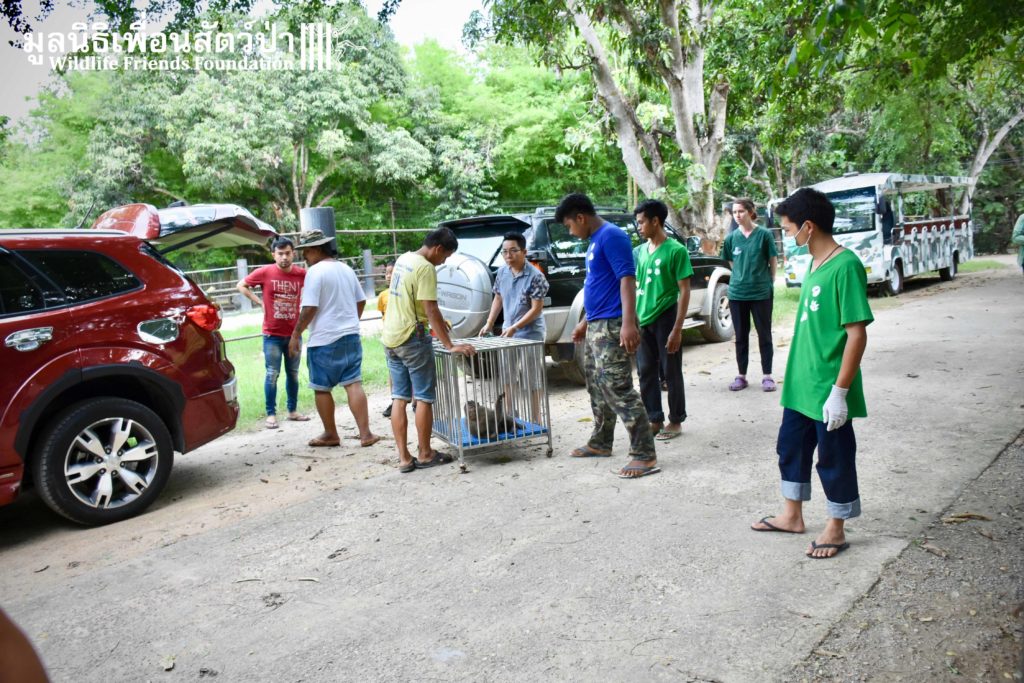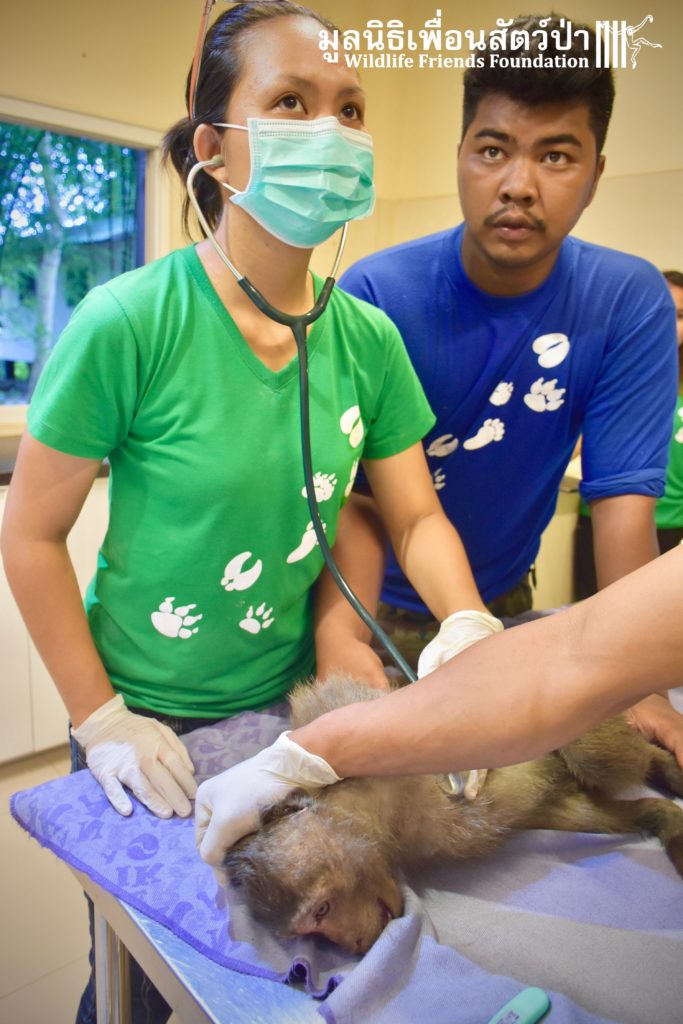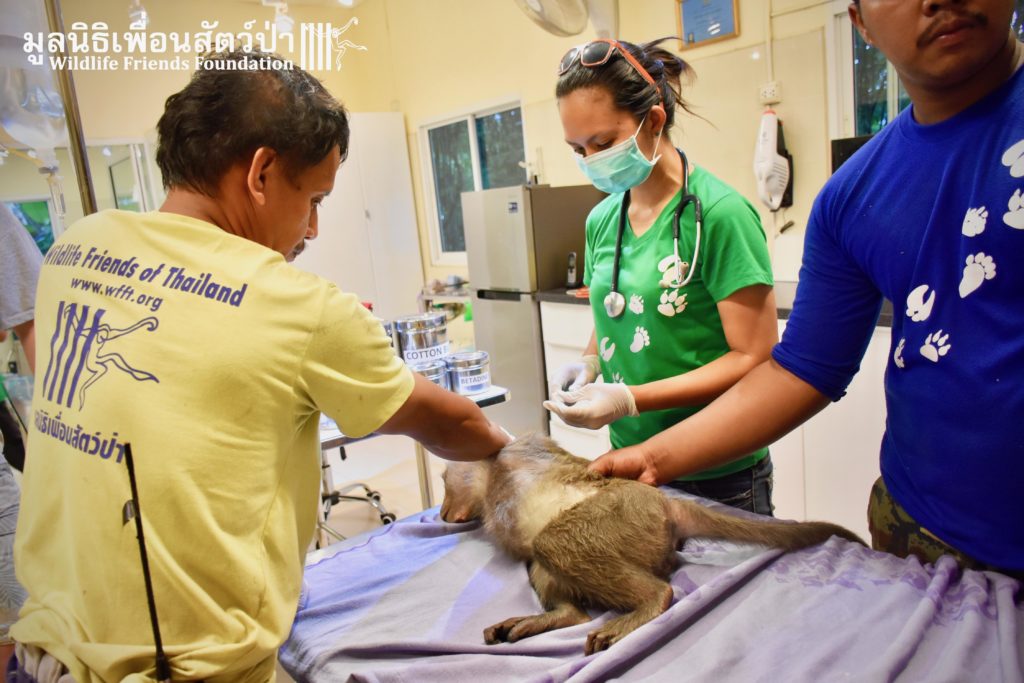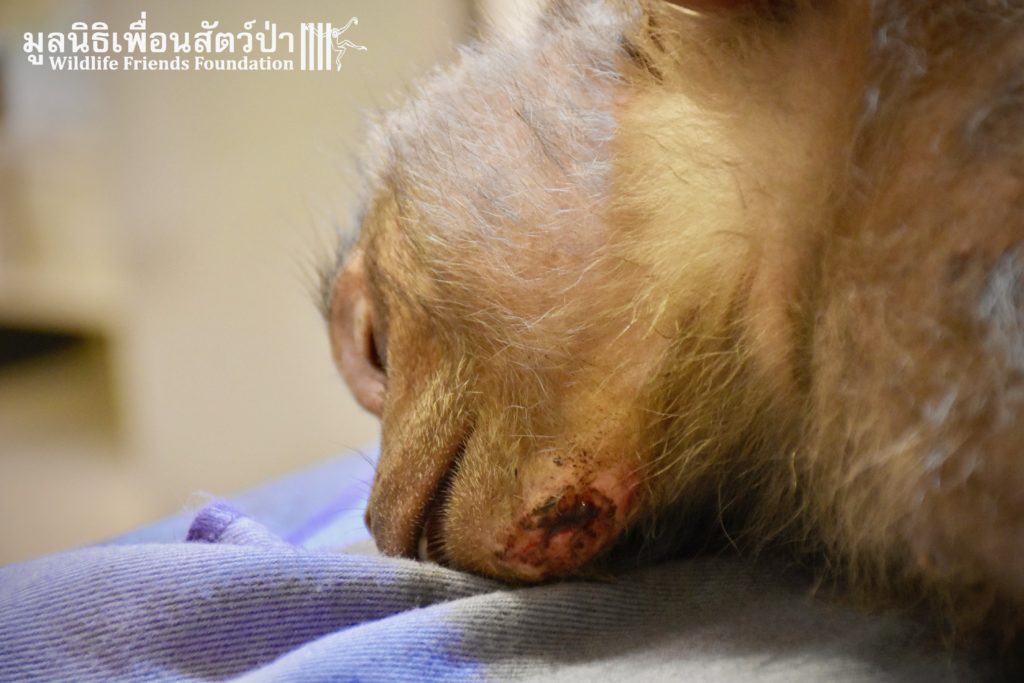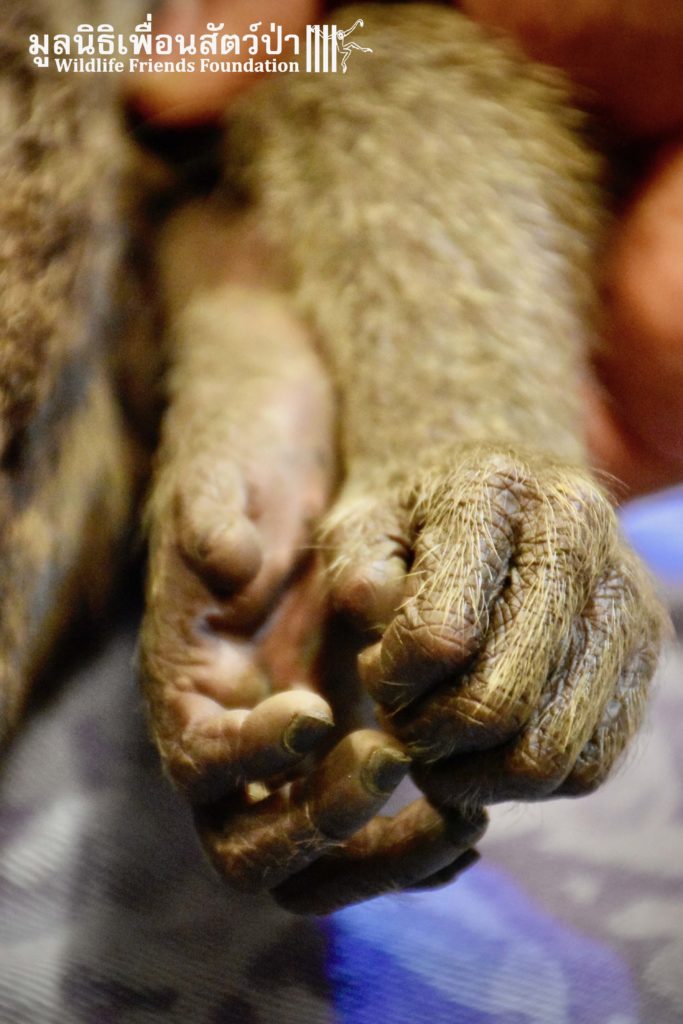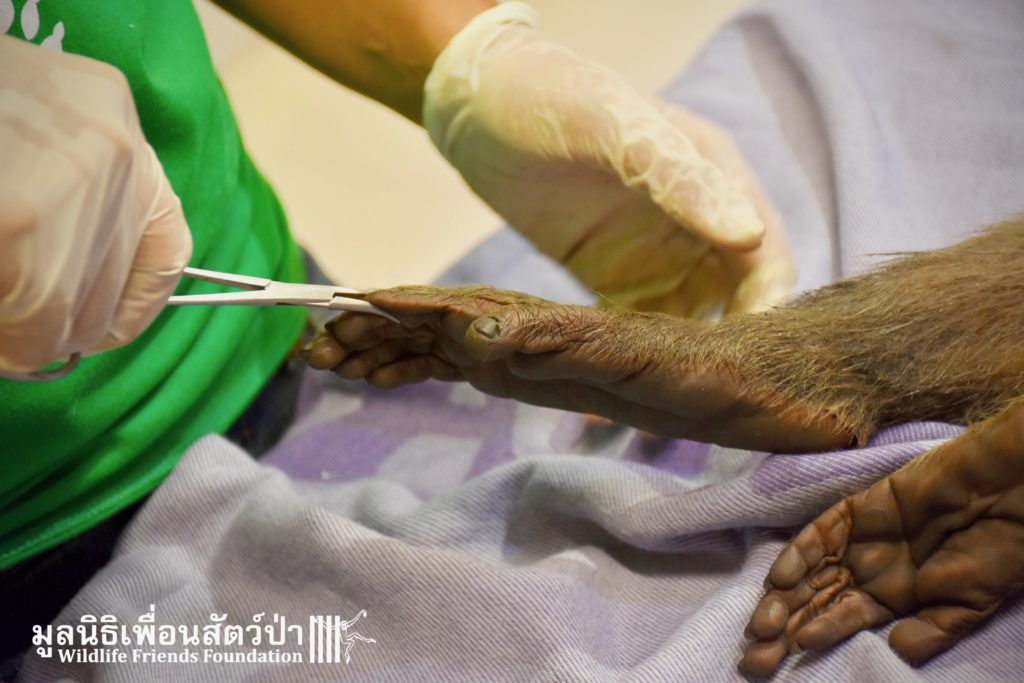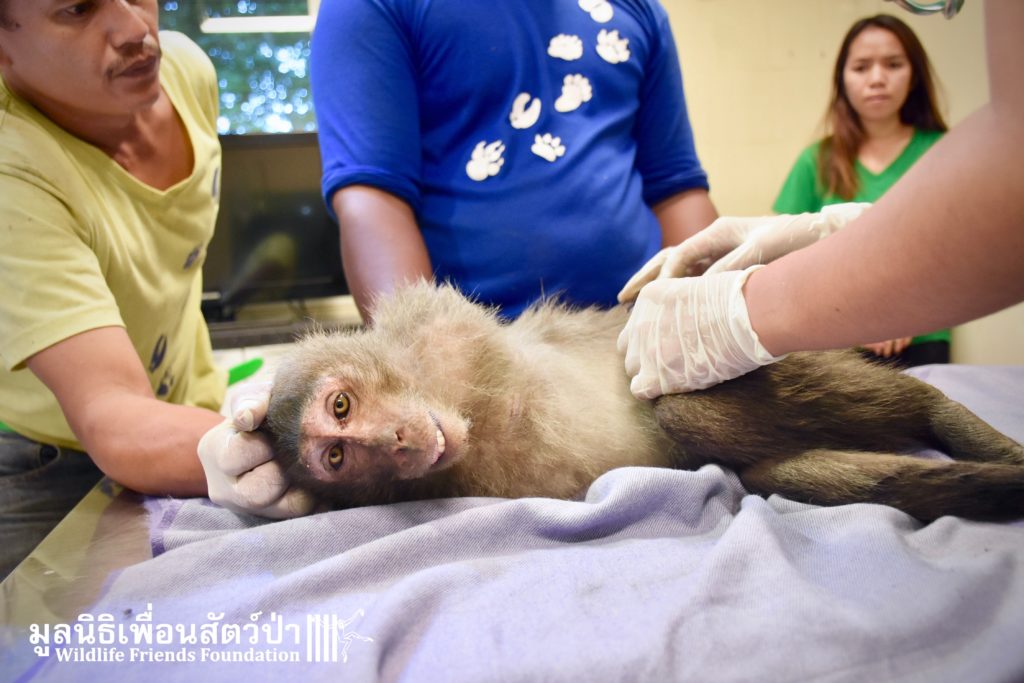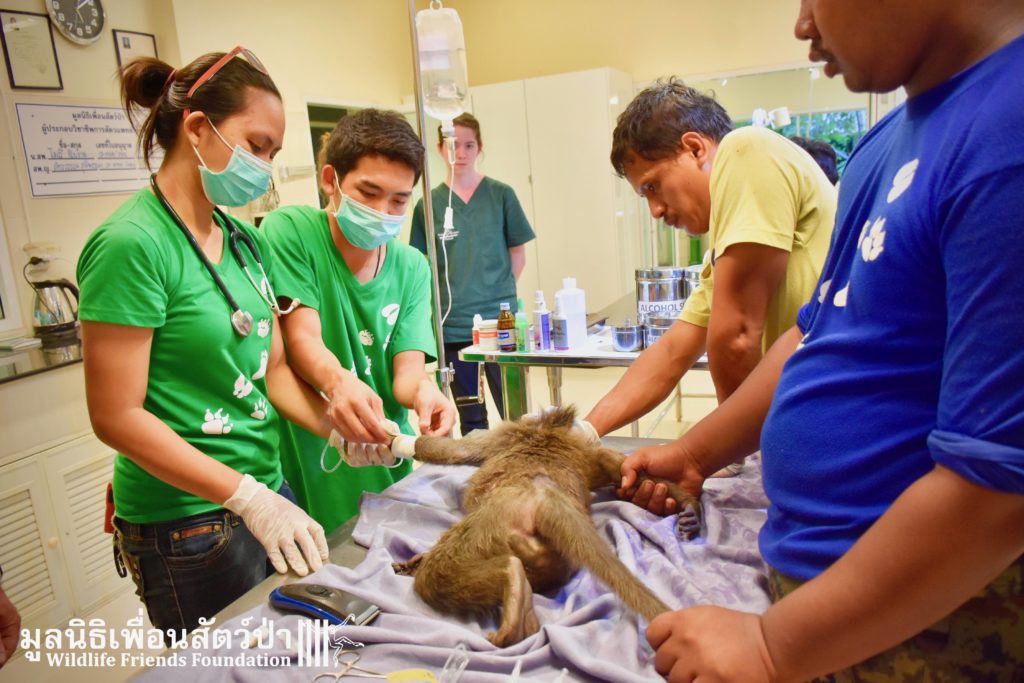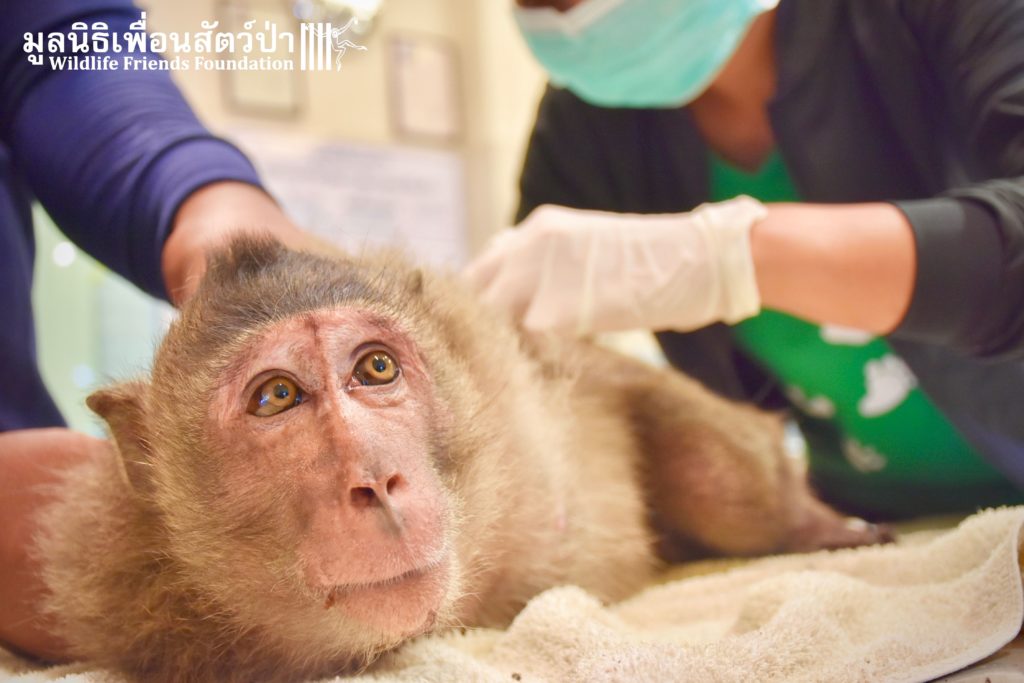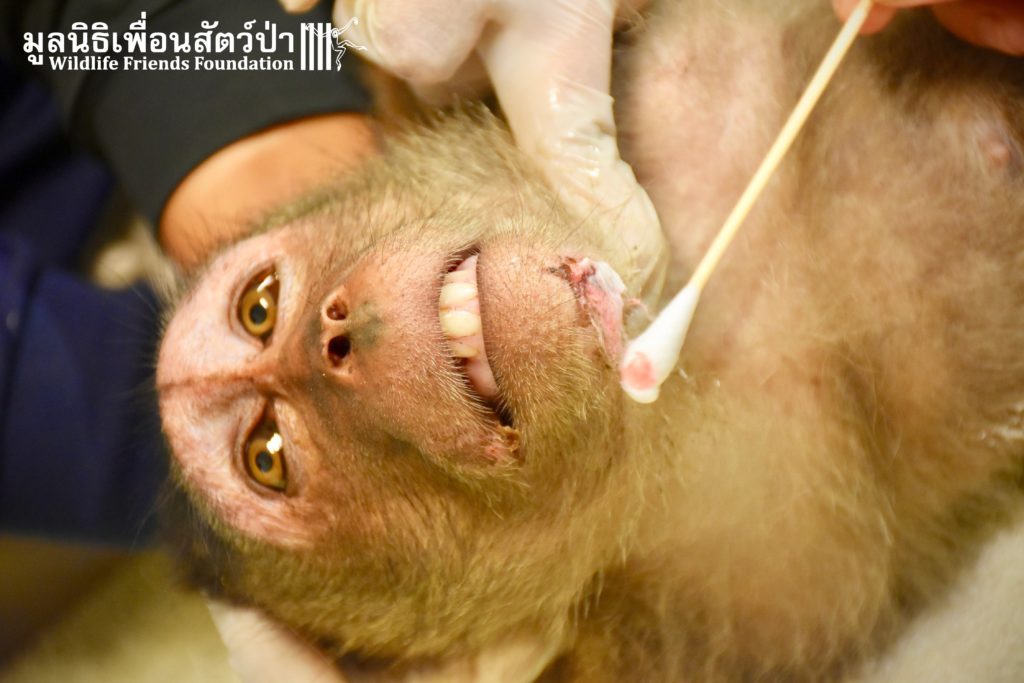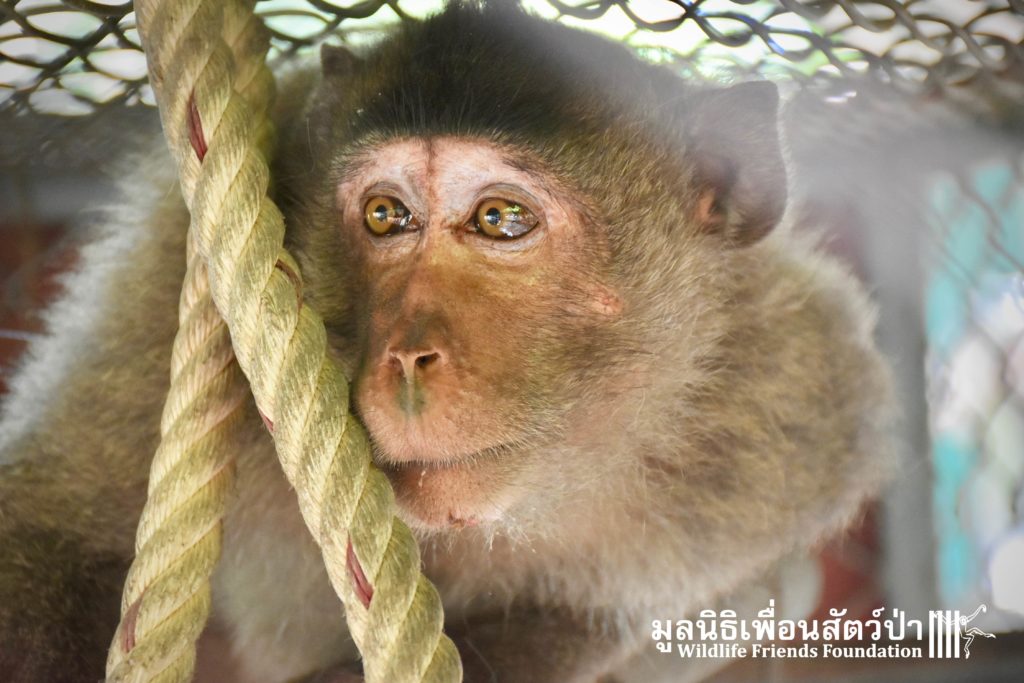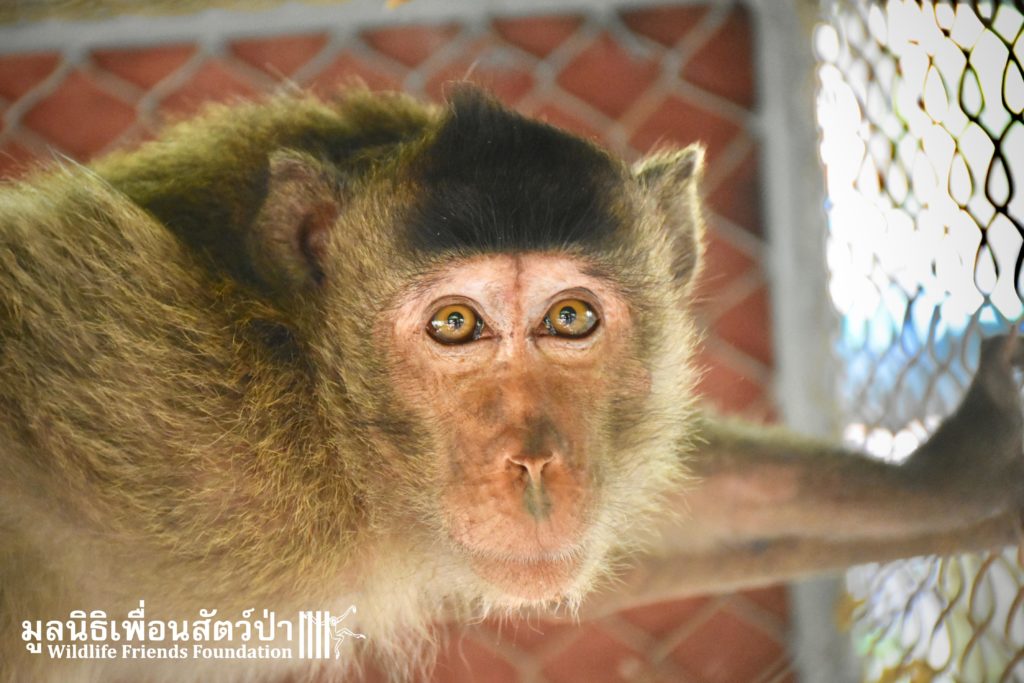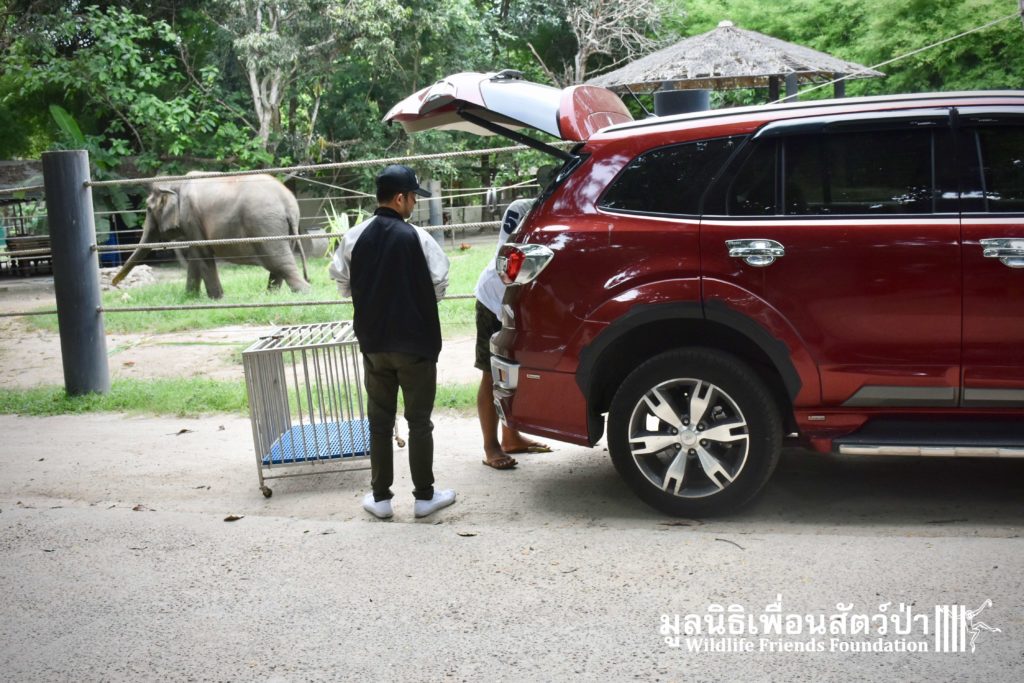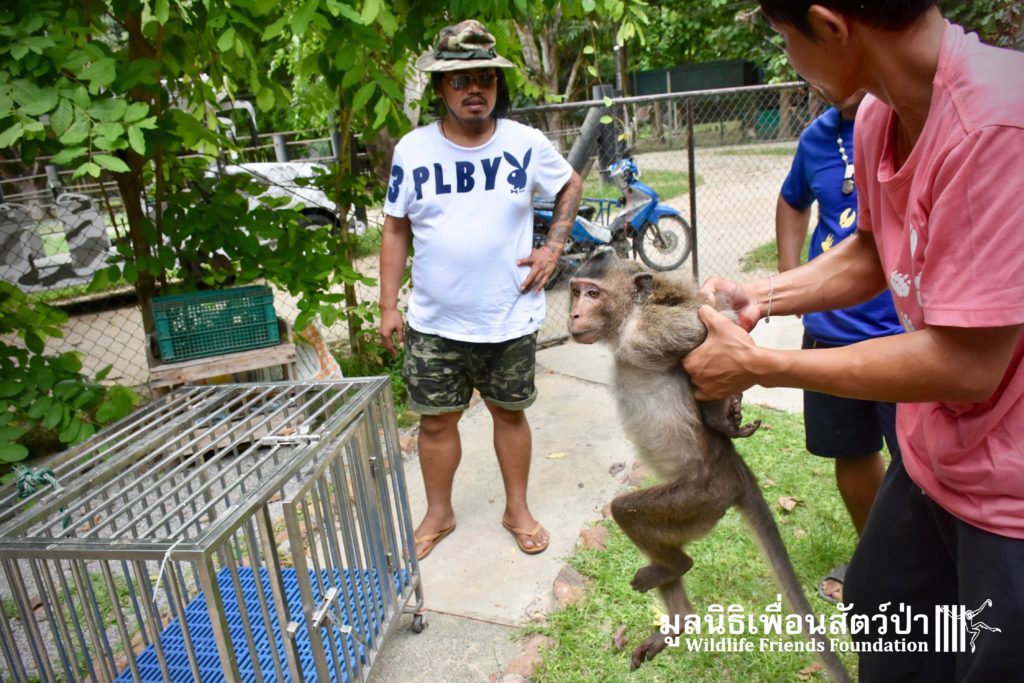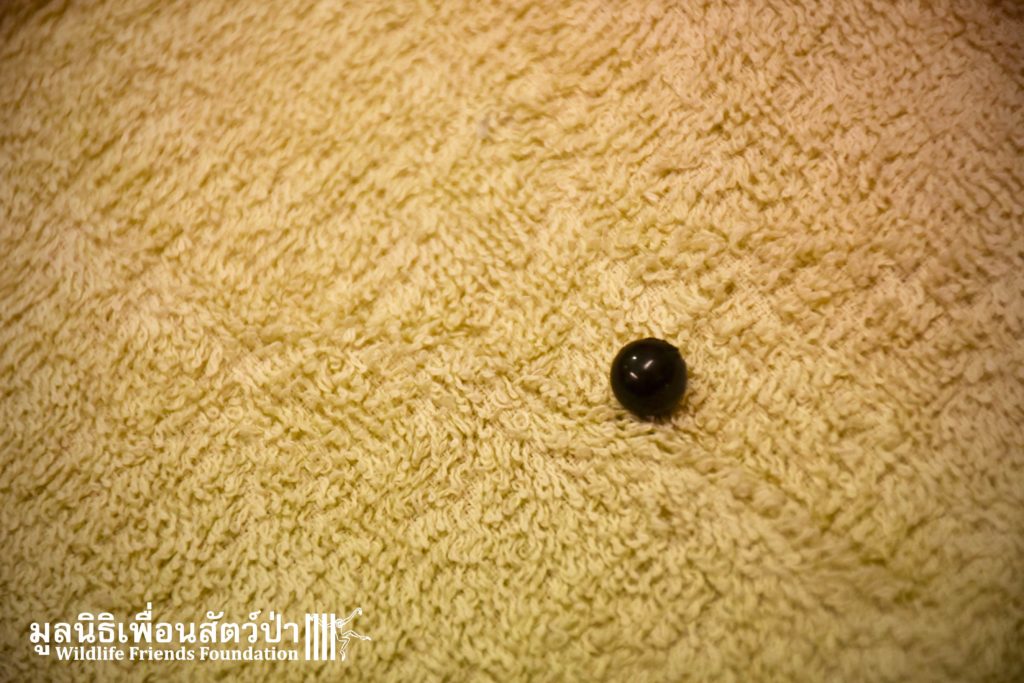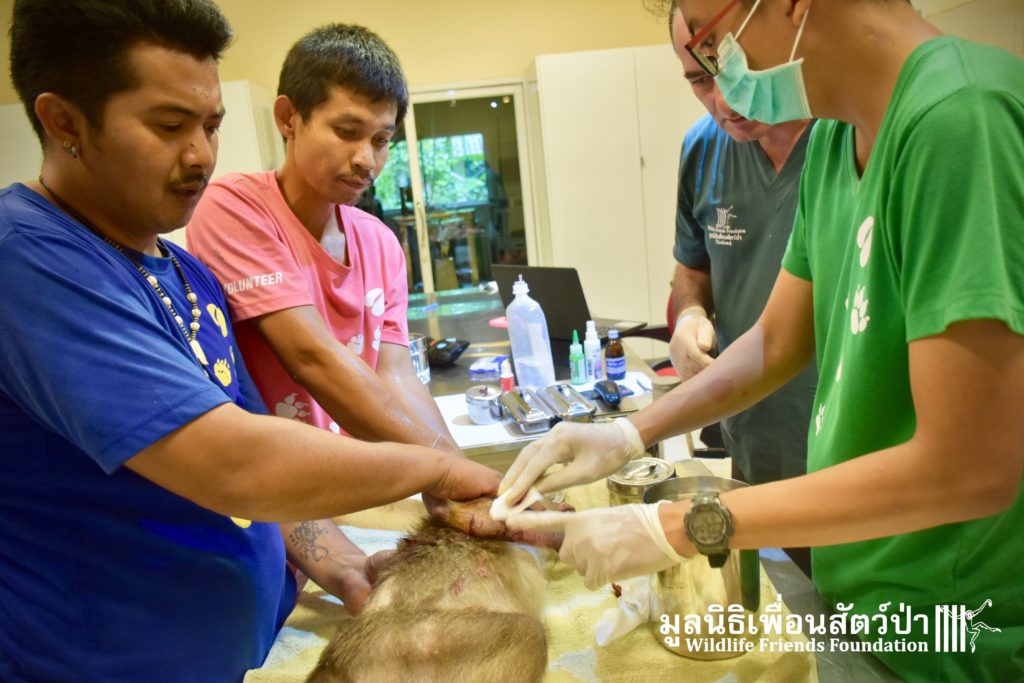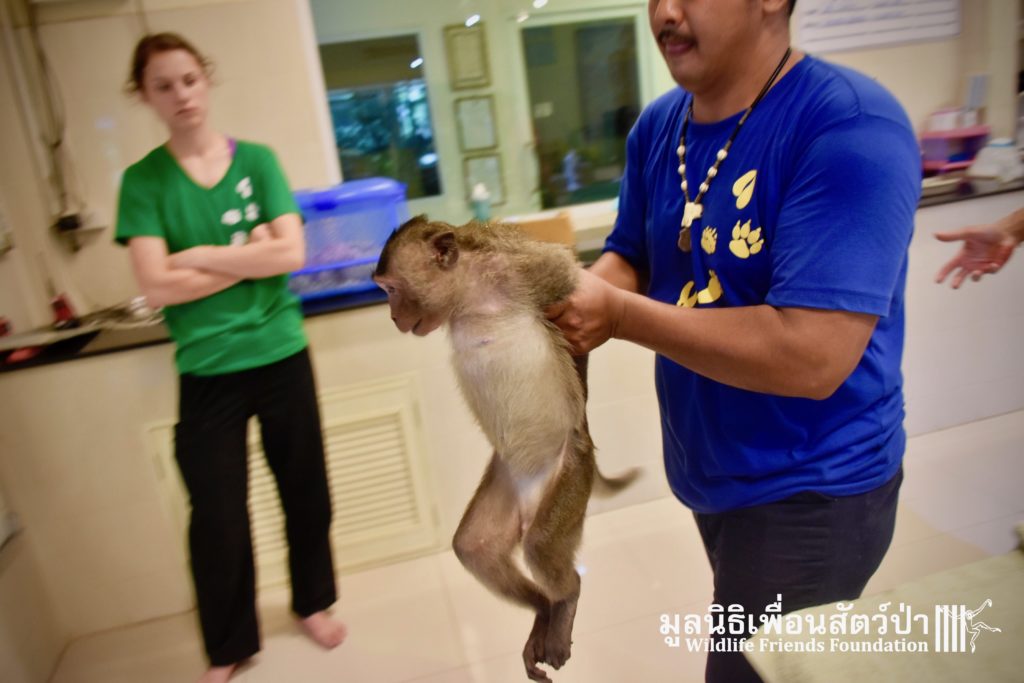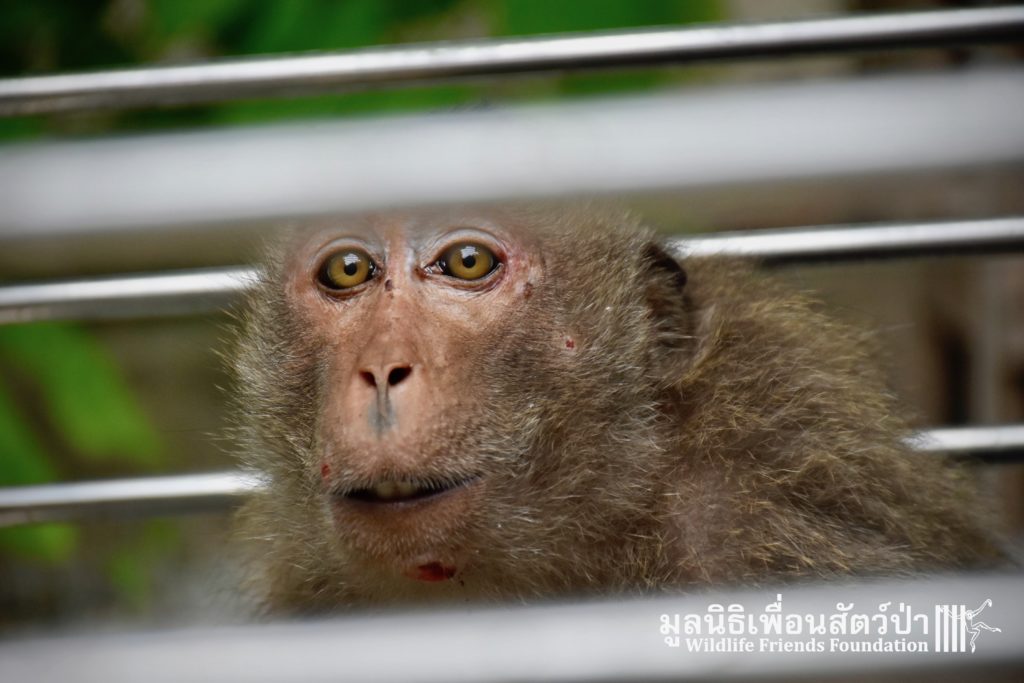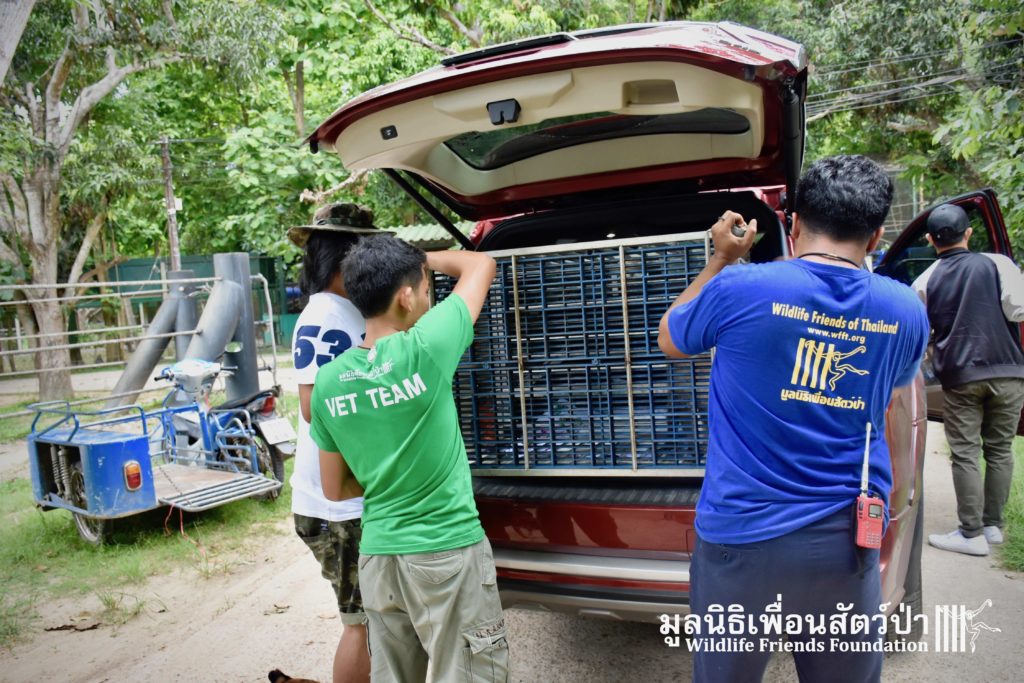Shampoo and Hoy, two stunning long-tailed macaques, have recently arrived at WFFT after enduring years in a cramped cage, deprived of sunlight and freedom.
Successful Monkey Rescue and Release
Last week we received a call for help from a team of people who help a troop of urban long-tailed macaques (Macaca fascicularis) in the city of Bangkok. They had found a sub-adult male on the floor unable to move after he had fallen from a tree. The monkey carers brought this macaque straight to the WFFT Wildlife Hospital for urgent treatment so our expert team could help him. When he arrived the team noticed wounds that had likely been caused by a fight with other monkeys or feral dogs, this could explain why he had fallen. He was also unable to use both his legs, which after treatment of his other minor injuries was the main concern. During the first day after treatment, no change his is condition was observed, but the day after that, he began to use one of his legs and began to eat well again, signs that he was recovering. To add further to his injuries a metal bullet was found in his arm, a small incision was made by the WFFT Vet team and the bullet was removed. After a few days this little man had made a miraculous recovery so we called his rescuers and they returned to WFFT to collect him and take him home back to his troop. Run free little guy, and try to avoid trouble in the future.
The long-tailed macaque is listed as Least Concern (LC) by the IUCN Red list of Threatened Species, in view of its wide distribution, presumed large population, tolerance of a broad range of habitats, occurrence in a number of protected areas. Although it is under heavy hunting pressure for the pet trade, meat, sport and trophies, this is not considered a major threat to the species overall. Females are often taken into breeding facilities and males are exported internationally primarily for use in laboratory research. They are regularly persecuted as pests. Habitat loss is also a localised threat, but the species can persist in a variety of habitats and very adaptable.

